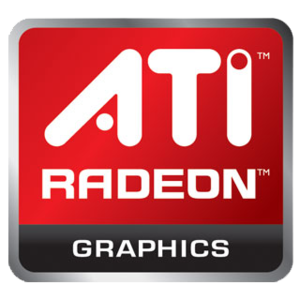We are still actively working on the spam issue.
Difference between revisions of "Radeon"
m (→Requirements & dependencies) |
m (→Requirements & dependencies) |
||
| Line 59: | Line 59: | ||
`-- x11-proto/xineramaproto | `-- x11-proto/xineramaproto | ||
| − | Note: apt and yum users need only run ''''''sudo apt-get build-dep xserver-xorg-video-ati'''''' and ''''''sudo yum-builddep xorg-x11-drv-ati'''''' respectively, to build the dependencies automagically. Arch users install <code>xf86-video-ati</code> package to satisfy all dependencies, and portage users need only emerge the actual driver to fulfill all the dependencies. | + | Note: apt and yum users need only run ''''''sudo apt-get build-dep xserver-xorg-video-ati'''''' and ''''''sudo yum-builddep xorg-x11-drv-ati'''''' respectively, to build the dependencies automagically. Arch users can install <code>xf86-video-ati</code> package to satisfy all dependencies, and portage users need only emerge the actual driver to fulfill all the dependencies. |
== Building == | == Building == | ||
Revision as of 14:50, 9 December 2015
Radeon is the GNU/Linux open source graphics driver for AMD/ATI Radeon graphics cards that is often replaced by fglrx due to seemingly poor 3D acceleration. This guide will attempt to fix this, mostly by making use of the new feature-set, namely, DRI3.
Disclaimer: This is quite bleeding edge and might not work. Should it fail, you will be on your own.
Contents
[hide]Before starting
Check your cards feature-set: https://wiki.freedesktop.org/xorg/RadeonFeature/#index6h2 "Decoder ring for engineering vs marketing names" will tell you what model your card actually is.
Back your xorg.conf up by issuing sudo cp /etc/X11/xorg.conf /etc/X11/xorg.conf~
What should I expect?
Run: vblank_mode=0 glxgears & sleep 15 ; killall glxgears
| Test | GPU | Before | After |
|---|---|---|---|
| glxgears | r9 280x (gigabyte) | 3258.964 FPS | 19291.922 FPS |
glxgears is a very simple test and it won't give you real world results, but you can use it to test a driver's 3D performance relative to another one. As you can see here, the results speak for themselves and indicate a performance increase of roughly 560%. For a real-world focused benchmark, scroll down.
Requirements & dependencies
X.Org Server 1.17 (not absolutely necessary, but recommended for stability) media-libs/mesa (the newest version you can find, I recommend the latest one: scroll down the page for more on this)
`-- media-libs/mesa (>=11.0, preferably -git[1]) `-- x11-libs/libdrm (>=2.4.58, preferably -git[2]) `-- x11-libs/libpciaccess (>=0.8.0) `-- x11-base/xorg-server (ideally, >=1.17) `-- x11-libs/glamor (>=0.6) `-- virtual/udev `-- x11-proto/fontsproto `-- x11-proto/randrproto `-- x11-proto/renderproto `-- x11-proto/videoproto `-- x11-proto/xextproto `-- x11-proto/xf86driproto `-- x11-proto/xproto `-- sys-devel/automake (>1.15) `-- sys-devel/autoconf (>=2.69) `-- sys-devel/libtool (>=2.4) `-- sys-devel/m4 `-- x11-misc/util-macros (>=1.18) `-- media-fonts/font-util (>=1.2.0) `-- virtual/pkgconfig `-- x11-proto/glproto `-- x11-proto/dri2proto `-- x11-proto/xineramaproto
Note: apt and yum users need only run 'sudo apt-get build-dep xserver-xorg-video-ati' and 'sudo yum-builddep xorg-x11-drv-ati' respectively, to build the dependencies automagically. Arch users can install xf86-video-ati package to satisfy all dependencies, and portage users need only emerge the actual driver to fulfill all the dependencies.
Building
- git clone git://anongit.freedesktop.org/xorg/driver/xf86-video-ati
- cd xf86-video-ati
- ./autogen.sh --prefix=/opt/xorg
- make
- sudo make install
Afterwards
# sudo vim /etc/X11/xorg.conf
Section "Files"
ModulePath "/opt/xorg/lib/xorg/modules,/usr/lib/xorg/modules"
EndSection
Make sure you have these as well:
Section "Module"
Load "dri"
Load "dbe" # Double buffer extension // See compatibility on features page
Load "glx" # OpenGL X protocol interface // See compatibility on features page
Load "extmod" # Misc. required extension // See compatibility on features page
EndSection
Section "DRI"
Group "video"
Mode 0666
EndSection
# sudo vim /etc/X11/xorg.conf.d/20-radeon
Section "Device"
Identifier "radeonVGA"
Driver "radeon"
Option "AccelMethod" "Glamor" # See compatibility on features page
Option "DRI3" "on" # Compatibility not very well documented, remove it if it fails
Option "EnablePageFlip" "On"
EndSection
Feel free to run # sudo chattr +i /etc/X11/xorg.conf to keep X from overwriting this (chattr -i will undo this).
Example xorg.conf: http://pastebin.com/aE3e21Bn
IMPORTANT: Recompiling the driver will become a necessity after each major X upgrade (eg: 1.16 --> 1.17, not 1.16 --> 1.16.4), due to ABI changes.
Testing
To ensure DRI3 is enabled, run cat /var/log/Xorg.0.log | grep -i DRI3. Output should be as follows:
[ 14.031] (**) RADEON(0): Option "DRI3" "on" [ 16.723] (**) RADEON(0): DRI3 enabled
External links
For more info (eg: building libdrm and mesa from source, in this order)
